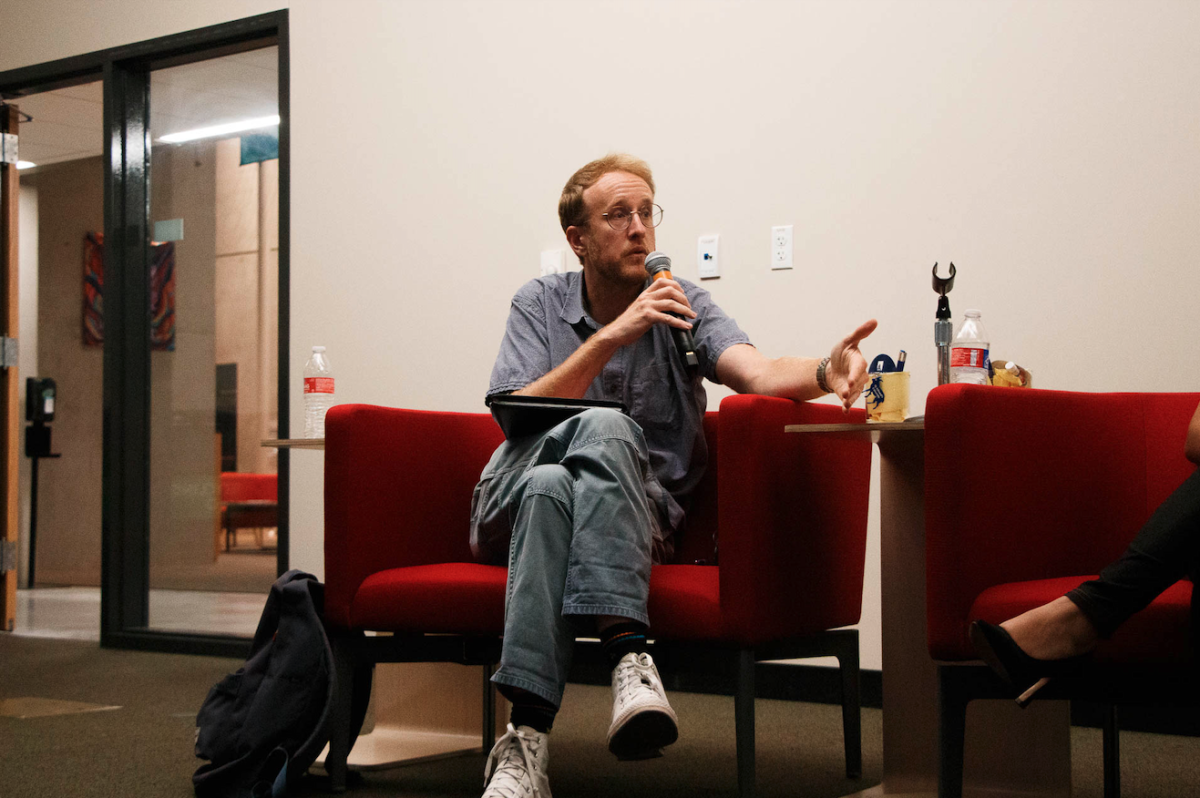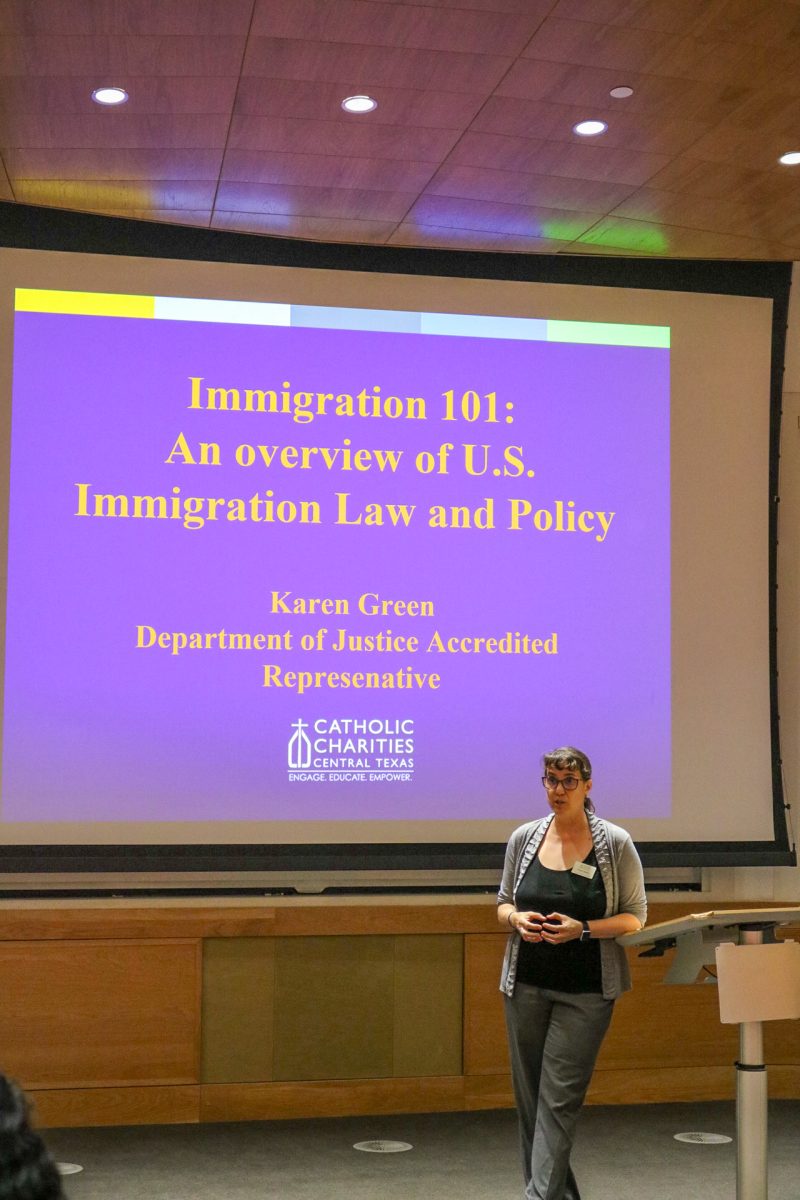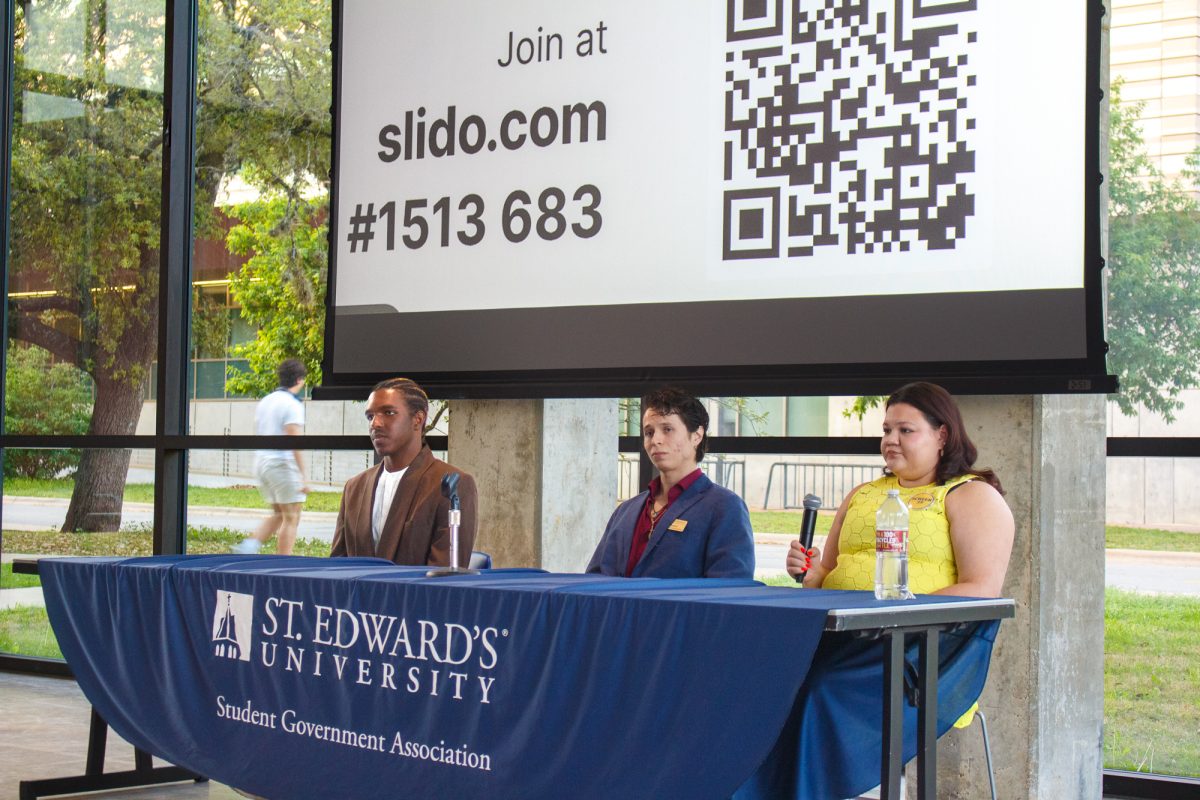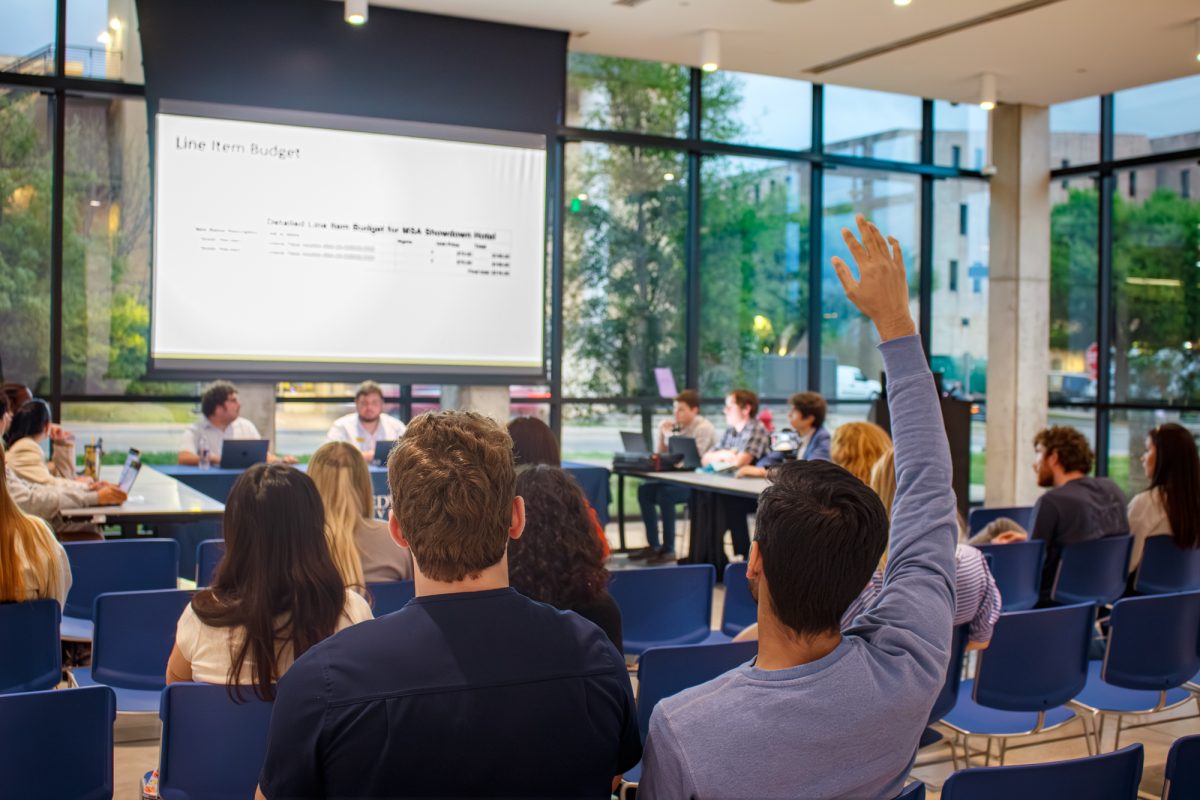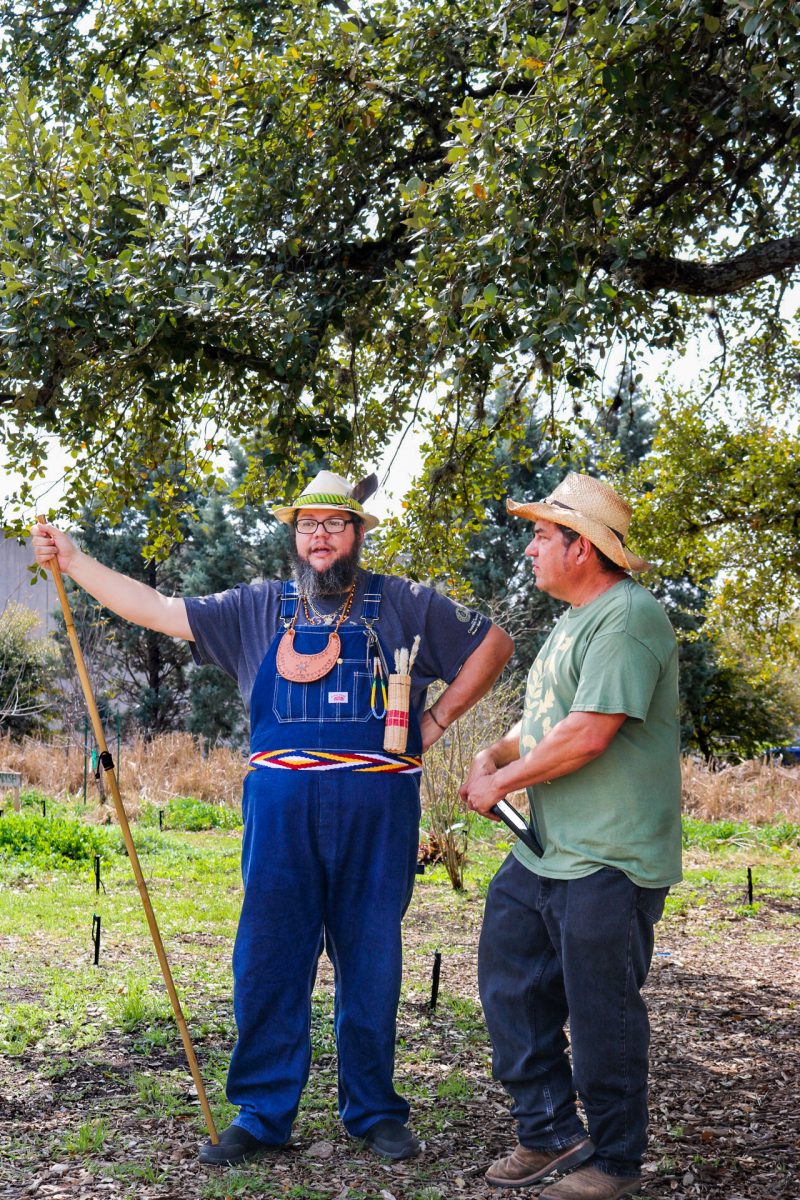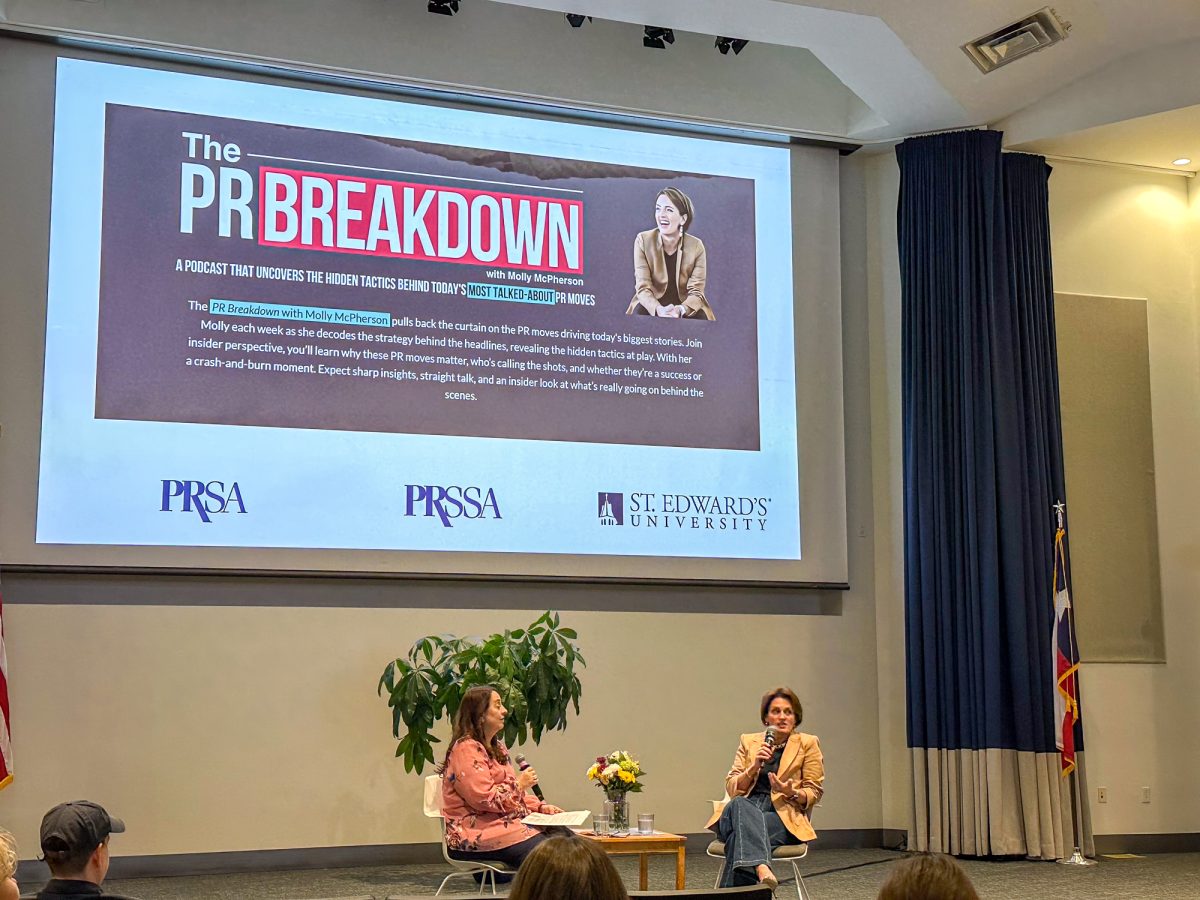Faculty members from the St. Edward’s School of Behavioral and Social Sciences organized and hosted a discussion panel addressing detention and migrant justice on Sept. 24 at Munday Library. The panel’s purpose was to inform the St. Edward’s community on immigration detention, provide different perspectives of the issue to make attendees more aware of the impact, and provide ways students can get more involved to combat it.
The panel welcomed four speakers with expertise on immigration, with Associate Professor Laurie Cook Heffron, Ph. D, serving as the mediator and host of the conversation. The lineup of speakers included immigration campaign manager Sulma Franco, civil and human rights advocate Bob Libal, legal caseworker and SEU alum Valentin Padilla and adjunct social work professor Esmeralda Rubalcava Hernandez. Heffron expresses that the different perspectives from each professor hopefully foster involvement within students of different areas of studies.
“I have a hope that students from different majors and different disciples can envision ways that, either personally or in their profession and future careers, can be involved,” Heffron said. “The panelists represent different ways of going about this work.”
The impact of each speaker’s answers lay within their lens of focus in regards to the issue, whether it was academic research, advocacy work or first-hand experience of the detention system against immigrants. Franco recounts her own personal experience of being detained as an immigrant from Guatemala, and how that was the motivation for her involvement in immigration campaigns and grassroots organizations.
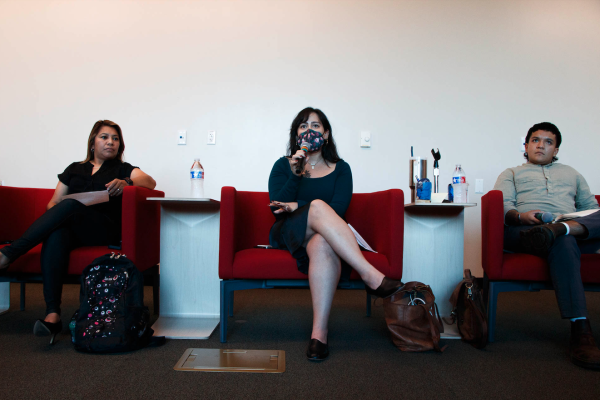
”When people migrate, they are looking for security,” Franco said. “The harms they face include incarceration, which is why we need to recognize that the people coming here are already carrying damage with them.”
Hernandez provided a systemic lens to the discussion, having a background primarily focused on social work, criminal justice and, more specifically, the intersection between the criminal justice system and the immigration system. She expressed that she hopes her research and perspective regarding the topic helped attendees understand the intersectionality that exists between so many different systems and, more commonly, with the immigration system.
“I am really hopeful that folks, especially those who are newly engaging with this, are able to take away the intersection of all of these systems,” Hernandez said. “No matter what field you’re in, immigration touches on it, and so does detention and the “crimmigration” system.”
The panel serves as the first edition to a three-part discussion panel series focusing on the issue of immigration and will cover topics such as the impact voting has on the immigrant community. Counseling professor Jessenia Garcia explains that this discussion was just one effort to bring more awareness and an attitude of change towards the criminalization of immigrants in the United States.
“We want to bring people together, have these conversations, learn together,” Garcia said. “The hope is that people leave here with some feeling of change and a call to action.”


